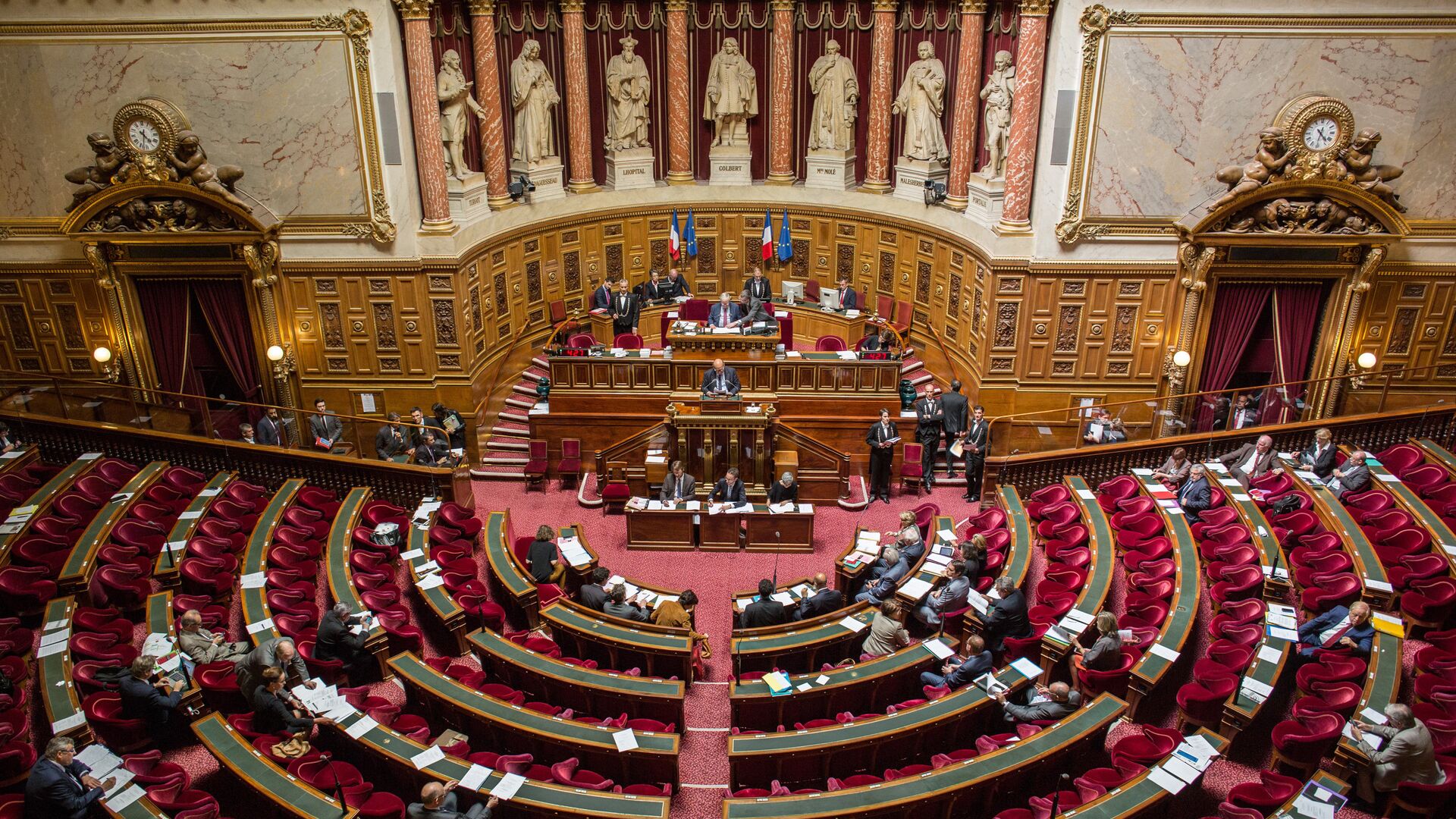https://sputnikglobe.com/20240630/crunch-time-understanding-frances-snap-parliamentary-elections-1119181687.html
Crunch Time: Understanding France’s Snap Parliamentary Elections
Crunch Time: Understanding France’s Snap Parliamentary Elections
Sputnik International
French President Emmanuel Macron announced the country’s snap parliamentary elections after his party suffered a heavy defeat to Marine Le Pen’s right-wing National Rally in the June 9 European Parliament vote.
2024-06-30T04:01+0000
2024-06-30T04:01+0000
2024-07-01T04:31+0000
world
france
emmanuel macron
marine le pen
elections
https://cdn1.img.sputnikglobe.com/img/105457/89/1054578993_0:112:3045:1825_1920x0_80_0_0_9dfc6d71fb19efad0b77145c555051a4.jpg
Voters will cast their ballots on June 30 in the first of two possible rounds of the early French polls to elect 577 members of the National Assembly, the country’s parliament.Who is Taking Part and What to Expect Three major political blocs are competing, including Marine Le Pen’s right-wing National Rally (NR), President Emmanuel Macron’s center-right alliance Ensemble, and the left-wing bloc New Popular Front (NFP).How Do Elections Work?Voting kicks off at 06:00 GMT and is expected to end at 16:00 GMT, although polling stations in Paris and other major cities will stay open until 18:00 GMT.In the first round, the voter turnout needs to be at least 25% and a candidate ought to win an absolute majority of votes cast. In a multiparty system like France’s, these two conditions mean a second round of voting will most likely happen in some constituencies on July 7.Only those candidates who will secure at least 12.5% of the vote in the first round can compete in the second one, which effectively narrows the field of contestants.A popular French saying says: “In the first round you vote with your heart, in the second - with your head.”'Cohabitation'If a political force other than Macron's center-right alliance gets a majority, he will have to appoint a prime minister belonging to that bloc – a situation called “cohabitation” in France.Under cohabitation, the French government would implement policies that diverge from the president’s stance.What Do Party Leaders Say Macron, for his part, confirmed he would not step down if his party suffers in the vote, adding that he “does not intend to campaign more than [he did] in 2017 and 2022.”
https://sputnikglobe.com/20240622/frances-left-wing-parties-vow-to-scrap-macrons-controversial-pension-reform-if-elected-1119056289.html
france
Sputnik International
feedback@sputniknews.com
+74956456601
MIA „Rossiya Segodnya“
2024
Oleg Burunov
https://cdn1.img.sputnikglobe.com/img/07e4/09/0b/1080424846_0:0:2048:2048_100x100_80_0_0_3d7b461f8a98586fa3fe739930816aea.jpg
Oleg Burunov
https://cdn1.img.sputnikglobe.com/img/07e4/09/0b/1080424846_0:0:2048:2048_100x100_80_0_0_3d7b461f8a98586fa3fe739930816aea.jpg
News
en_EN
Sputnik International
feedback@sputniknews.com
+74956456601
MIA „Rossiya Segodnya“
Sputnik International
feedback@sputniknews.com
+74956456601
MIA „Rossiya Segodnya“
Oleg Burunov
https://cdn1.img.sputnikglobe.com/img/07e4/09/0b/1080424846_0:0:2048:2048_100x100_80_0_0_3d7b461f8a98586fa3fe739930816aea.jpg
france's snap parliamentary elections, marine le pen’s right-wing national rally, french president emmanuel macron’s centrist alliance – ensemble, the left-wing bloc nouveau front populaire, nr's lead in the polls
france's snap parliamentary elections, marine le pen’s right-wing national rally, french president emmanuel macron’s centrist alliance – ensemble, the left-wing bloc nouveau front populaire, nr's lead in the polls
Crunch Time: Understanding France’s Snap Parliamentary Elections
04:01 GMT 30.06.2024 (Updated: 04:31 GMT 01.07.2024) French President Emmanuel Macron announced the elections after his party suffered a heavy defeat to Marine Le Pen’s National Rally in the June 9 European Parliament vote.
Voters will cast their ballots on June 30 in
the first of two possible rounds of the early French polls to elect 577 members of the National Assembly, the country’s parliament.
Who is Taking Part and What to Expect
Three major political blocs are competing, including Marine Le Pen’s right-wing National Rally (NR), President Emmanuel Macron’s center-right alliance Ensemble, and the left-wing bloc New Popular Front (NFP).
NR calls for a "more balanced" and "independent" French foreign policy, supporting France leaving NATO's integrated command and reform of the EU, with zero tolerance for breaches of law and order.
The NFP was formed with an intent to "build an alternative to Emmanuel Macron and fight the racist project of the extreme right" in the upcoming elections.
Ensemble includes Macron’s Renaissance party, in particular, upholding stances in favor of the EU and environmental protection.
NR leads the polls ahead of the elections with 36% of the vote, followed by the NFP with 28.5%, trailed by Ensemble with 21%, according to the latest surveys. The polls suggest that the upcoming elections will almost certainly confirm the trend in terms of the results.
Voting kicks off at 06:00 GMT and is expected to end at 16:00 GMT, although polling stations in Paris and other major cities will stay open until 18:00 GMT.
To win an absolute majority in the National Assembly, a party or bloc needs to obtain at least 289 seats out of 577.
In the first round, the voter turnout needs to be at least 25% and a candidate ought to win an absolute majority of votes cast. In a multiparty system like France’s, these two conditions mean a second round of voting will most likely happen in some constituencies on July 7.
Only those candidates who will secure at least 12.5% of the vote in the first round can compete in the second one, which effectively narrows the field of contestants.
A popular French saying says: “In the first round you vote with your heart, in the second - with your head.”
If a political force other than Macron's center-right alliance gets a majority, he will have to appoint a prime minister belonging to that bloc – a situation called “cohabitation” in France.
Under cohabitation, the French government would implement policies that diverge from the president’s stance.
What Do Party Leaders Say
Le Pen recently made it clear that she will not seek Macron’s resignation if her party prevails in the snap elections. “I’m respectful of institutions. I do not call for institutional chaos. There will simply be cohabitation,” she pointed out.
Macron, for his part, confirmed he would not step down if his party suffers in the vote, adding that he “does not intend to campaign more than [he did] in 2017 and 2022.”



